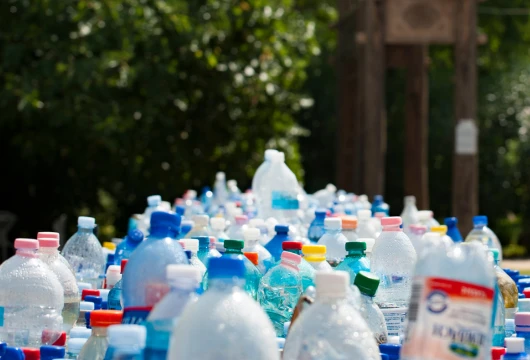The Philippines, known for its vibrant culture and scenic beauty, has long been one of the world’s most significant contributors to ocean plastic. In a bold move to tackle this pressing issue, the country implemented Southeast Asia’s first Extended Producer Responsibility (EPR) law, signaling a commitment to sustainability and accountability.
This groundbreaking legislation requires large corporations to actively participate in reducing plastic waste by redesigning products and directly funding waste removal efforts. Though challenges persist, the initiative is a hope for the global fight against plastic pollution.
Sustainability at the Forefront of Change
With a population of 120 million, the Philippines generates an estimated 1.7 million metric tons of plastic waste annually. Of this, a staggering 35% is openly discarded. The EPR law seeks to shift this narrative by introducing a model for achieving plastic neutrality. This involves reducing the environmental footprint of large businesses and mandating them to recover 20% of their plastic packaging initially, with targets escalating to 80% by 2028.
What sets the EPR law apart is its inclusiveness. The policy applies to all types of plastics, including hard-to-recycle flexible plastics. Yet, it stops short of outright bans, opting for an approach emphasizing shared responsibility and gradual systemic change.
A Community-Centric Solution for Sustainability
The law has empowered local communities, creating a system where waste has value. Individuals like Marita Blanco, a former street sweeper in Manila, now collect and sell discarded plastic to organizations like Friends of Hope. For every kilogram of plastic collected, Blanco earns two pesos—a modest income that is transforming her life and neighborhood.
“Two years ago, our streets were drowning in plastic,” says Ilusion Farias, Managing Director of Friends of Hope. “Today, we see cleaner environments and empowered individuals.”
This grassroots effort is bolstered by plastic credits, a system allowing companies to fund waste collection and recycling through certified credits. PCX Markets, a major player in this space, offers these credits at varying prices depending on the type of plastic and its processing method.
Corporate Commitments to Sustainability
Companies like Mondelez Philippines have fully embraced the law, opting to offset 100% of their plastic footprint. “It costs company budgets,” says Caitlin Punzalan of Mondelez, “but it’s a necessary investment in the environment.”
While offsetting provides a vital short-term solution, experts acknowledge that the real challenge lies upstream. Redesigning packaging to minimize plastic use remains a costly and complex process. “There is no procurement department willing to pay 20% more for sustainable materials just because it’s the right thing to do,” notes PCX Solutions’ Managing Director Stefanie Beitien.
Balancing Progress and Challenges
Critics point out that while effectively reducing waste, the current system still permits co-processing —burning plastic for energy and using the ash in cement production. Though this prevents plastic from entering landfills, it falls short of creating a truly circular economy.
The government remains optimistic. Environment Undersecretary Jonas Leones describes the law as a firm policy with immense potential. “We’re seeing progress, but real transformation will take time and collective effort,” he says.
A Global Model for Sustainability
The Philippines’ EPR law is more than just a national policy—it’s a potential blueprint for global environmental reform. The initiative aligns with international efforts to draft a treaty on plastic pollution, offering valuable lessons for other countries.
Floradema Eleazar of the UN Development Programme emphasizes patience: “Immediate impacts won’t be visible overnight. True sustainability requires a massive shift in behavior and mindset.”
Hope for a Sustainable Future
While the journey toward sustainability is fraught with challenges, the Philippines’ bold steps inspire optimism. By holding corporations accountable, empowering communities, and fostering innovation, the nation is addressing its plastic crisis and setting a precedent for others to follow.
As the world watches, the Philippines stands as a testament to the power of collective action in creating a cleaner, greener future.
For more in-depth analysis and inspiring climate news, click here.

